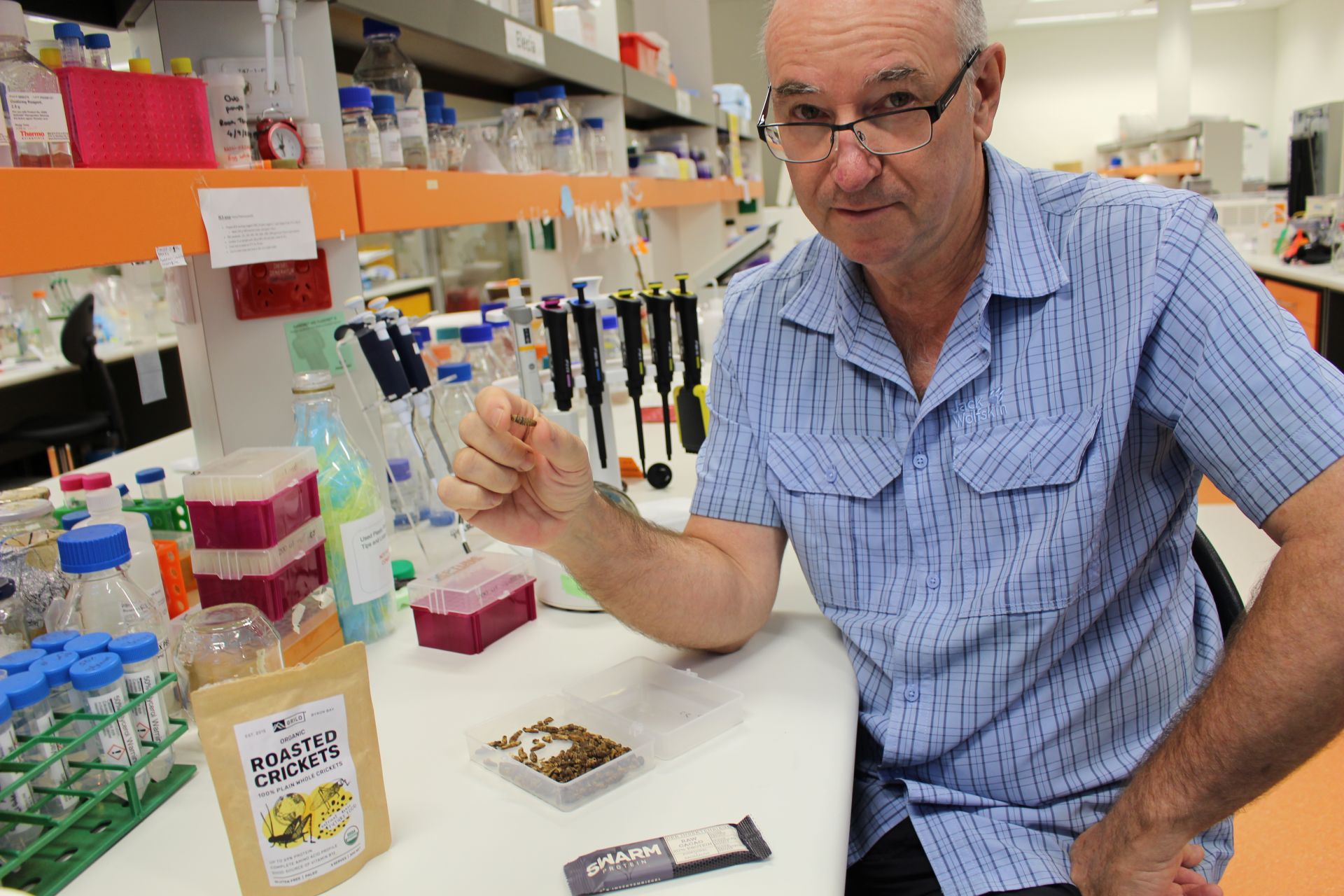Media Releases
It’s not just cricket

The thought of eating insects is already stomach turning for many, but new research suggests allergy-causing proteins in bugs could pose serious health risks for those suffering from shellfish allergy.
Professor Andreas Lopata from James Cook University’s Australian Institute of Tropical Health and Medicine said crickets and other insects could be key to feeding the estimated 9.7 billion people on Earth in 2050.
“More than 2 billion people already eat insects daily. It’s not sustainable to feed everyone with only animal-based proteins, so insects may be an effective solution for this problem,” said Professor Lopata.
He co-authored a new paper in the journal Food Chemistry, which identified 20 proteins found in cricket food products which could cause serious allergic reactions.
The project was co-lead with Professor Michelle Colgrave from Edith Cowan University’s School of Science and the CSIRO.
“Crickets are high in protein, nutrient dense and considered environmentally friendly. Numerous studies have shown eating insects provide benefits to gut health, and lower blood pressure while being high in antioxidants,” said Professor Colgrave.
She said while insects show promise as an alternative protein source, and are identified by Agrifutures as a high potential emerging industry, their allergenic properties are a concern.
The research team from ECU, CSIRO, James Cook University and Singapore’s National Agency for Science Technology and Research compared proteins from roasted whole crickets and cricket powder products to known allergens.
“This research showed a significant overlap in allergenic proteins found in cricket food products and those found in shellfish like crabs and prawns. That’s because crickets, mealworms and other insects are closely related to crustaceans.
“Shellfish allergies affect up to three per cent of people globally, but that varies according to age and region, and there’s a good chance that people allergic to shellfish will also react to insects,” said Professor Colgrave.
Professor Lopata, a leading expert on shellfish allergy, said containing an allergen does not prevent insect-based proteins being used as a food source.
“It does mean insect-based foods need to be tested and labelled correctly to ensure people with allergies don’t unwittingly eat them,” he said.
‘Protein extraction protocols for optimal proteome measurement and arginine kinase quantitation from cricket Acheta domesticus for food safety assessment’ was published in Food Chemistry and can be accessed at the Journal’s webpage.
Professor Andreas Lopata
E: andreas.lopata@jcu.edu.au
Ben Jones, Communications Coordinator, Edith Cowan University
E: b.jones2@ecu.edu.au